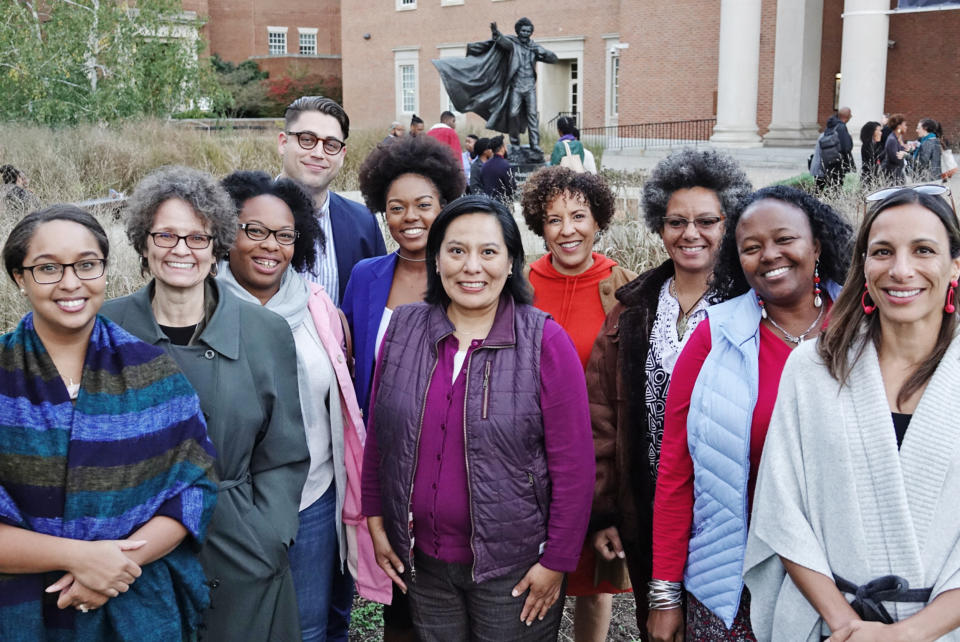MacArthur fellow P. Gabrielle Foreman wants to make sure 'unremembered' Black history gets taught
A professor at Penn State University who documented the “unremembered history” of Black political organizing is one of this year’s 25 MacArthur fellows, a select group of scholars who receive $800,000 no-strings-attached “genius grants” to further their work.
The MacArthur Foundation announced Wednesday that P. Gabrielle Foreman, co-director of Penn’s Center for Black Digital Research, was awarded the fellowship for her work “uncovering histories of African American organizing that are still relevant and resonant today.”
“I just could not be more honored,” Foreman told NBC News.
Foreman is the founding director of the Colored Conventions Project, a research initiative dedicated to archiving the history of Black men and women’s efforts to attain civil rights, dating back to the 1830s.
That history, Foreman argues, has been largely erased from academic discussions and mainstream conversations.
“We knew about the anti-slavery movement; we knew about abolition,” she said. “But the very same African Americans that were involved with those were advocating for the very same things that are on the table today.”
African Americans in the 19th century coalesced in what came to be known as “Colored Conventions,” where they discussed concerns regarding equality and planned political strategies at state and national levels. Voting rights, more racially and socioeconomically diverse juries and increased access to education were some of the most urgent demands, Foreman said, among many others. But most of the conventions’ records were, for many years, buried in private libraries.
“We’ve got a movement that is so resonant with today’s political issues, and yet, we didn’t know about it,” she said.

Jim Casey, an assistant professor at Penn State and Foreman’s partner in developing the Colored Conventions Project, said documenting the conventions movement is part of the group’s effort to rediscover the organizing efforts of Black communities throughout the decades, a larger goal he said is important.
“The Colored Conventions movement helps us to understand a history full of possibilities,” he said. “The Colored Conventions movement shows us democracy in action, and where we might hope to go.”
The project, which began in a graduate class at the University of Delaware, has grown to include the research contributions of hundreds of people. Now, it has a massive interactive online archive and was the inspiration behind “The Colored Conventions Movement: Black Organizing in the Nineteenth Century,” which was published last year.
Another major aspect of the project was the development of a school curriculum to teach what Denise Burgher, a doctoral student at the University of Delaware and co-chair of the project’s curriculum committee, calls the “unremembered history” of Black organizing for civil rights. For a number of reasons, she said, the full picture of that history has been “suppressed and silenced.”
“Most people, when they think about Black history, they think that African American history started with slavery,” she said. “That’s not true.”
The curriculum is already used by dozens of college faculty, and for the past several years, Foreman has worked with the School District of Philadelphia to implement some of it in K-12 schools. Later this year, the group plans to meet with a teacher who has been piloting it in the district to get feedback.
Amid widespread efforts to suppress teaching about race and racism in the U.S., Burgher said a greater and more accurate understanding of Black history is more important now than ever before.
“We’re trying to make sure that we don’t fall victim to the danger of a single story,” she said.
This article was originally published on NBCNews.com

